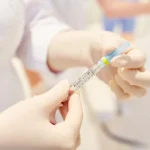THE WHAT? The US and China have extended a bilateral deal that sets out how the world’s two largest economies cooperate in the fields of science and technology. The US-China Science and Technology agreement was first forged in 1979, and has been renewed every five years since, excepting in 2023, when a six-month extension was approved.
THE DETAILS According to a report published by The Wall Street Journal, the longtime cooperation makes the two countries each other’s biggest research partner. The latest extension – again, just six months starting from February, 2024, signals that the cooperative mood may be waning as competition between the two becomes increasingly fierce.
THE WHY? Tension between the two countries has threatened the future of the deal as they vie for technological supremacy, the Wall Street Journal reports, putting any extension to the deal in jeopardy.
Clinical aesthetics products refer to a category of products used in the field of medical aesthetics or cosmetic dermatology. These products are typically designed and formulated to be used under the supervision of healthcare professionals, such as dermatologists, plastic surgeons, or trained aestheticians. They are distinct from over-the-counter cosmetics in that they often contain active ingredients or formulations that require expertise in their application or administration.
Examples of clinical aesthetics products include:
-
Dermal Fillers: Injectable substances used to add volume, smooth wrinkles, and enhance facial contours. Examples include hyaluronic acid fillers like Juvederm and Restylane.
-
Botulinum Toxin (Botox): Injectables that temporarily paralyze facial muscles to reduce the appearance of wrinkles caused by repetitive movements, such as frown lines and crow's feet.
-
Chemical Peels: Solutions applied to the skin to exfoliate and improve its texture. They can treat acne, pigmentation issues, and signs of aging.
-
Laser and Light Therapies: Devices that emit focused light or laser energy to treat various skin conditions, including acne, scars, and signs of aging.
-
Prescription Skincare Products: Formulations containing active ingredients like retinoids (vitamin A derivatives), hydroquinone, or prescription-strength antioxidants to address specific skin concerns under medical supervision.






